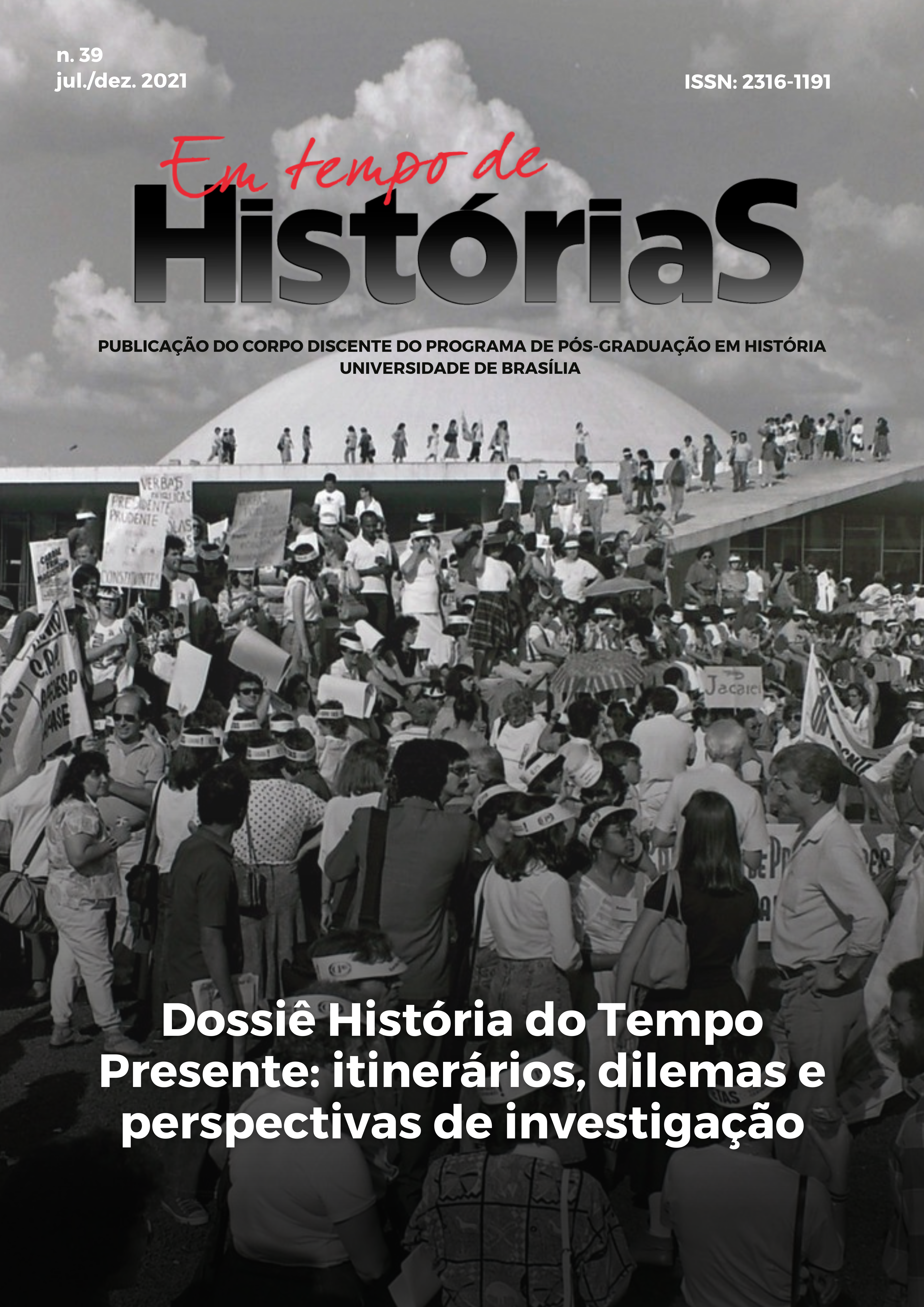Bourdieu's Theory of the State and the refugee's non-place
DOI:
https://doi.org/10.26512/emtempos.v1i39.39626Keywords:
State. Symbolic Power. Refugees.Abstract
The aim of this article is to reflect on the concepts and organization of the State, according to the theorist Pierre Bourdieu (1996), in order to discuss the reasons that hinder the assimilation of people in refugee situations by the receiving State. According to the author (1989), the State is a political organization that intends to homogenize, in such a way that citizens are created under the influence of a dominant symbolic power which they appropriate and which they reproduce. Symbolic capital creates cognitive structures in a homogeneous way, implying an identification among its citizens and an exclusion of external actors, where refugees fit. It is hypothesized that the refugee breaks with the philosophical presuppositions of his/her recipient State, as he was not created according to its norms, does not recognize its symbolic power and does not fit into its bureaucratic standards of functioning, thus resulting in a challenge to logic state-owned.
Downloads
References
ACNUR. Alto Comissariado das Nações Unidas para os Refugiados. [Site oficial]. Disponível em: https://www.acnur.org/portugues/. Acesso em: 10 jul. 2021.
ACNUR. Convenção Relativa ao Estatuto do Refugiado. 1951. Disponível em: https://www.acnur.org/fileadmin/Documentos/portugues/BDL/Convencao_relativa_ao_Estatuto_dos_Refugiados.pdf. Acesso em: 1 jan. 2019.
ACNUR. Declaração de Cartagena. 1984. Disponível em: https://www.acnur.org/fileadmin/Documentos/portugues/BD_Legal/Instrumentos_Internacionais/Declaracao_de_Cartagena.pdf. Acesso em: 20 nov. 2019.
ACNUR. Protocolo de 1967 Relativo ao Estatuto dos Refugiados. 1967. Disponível em: https://www.acnur.org/fileadmin/Documentos/portugues/BD_Legal/Instrumentos_Internacionais/Protocolo_de_1967.pdf?file=fileadmin/Documentos/portugues/BD_Legal/Instrumentos_Internacionais/Protocolo_de_1967. Acesso em: 1 jan. 2019.
BOURDIEU, Pierre. Espíritos de Estado: gênese e estrutura do campo burocrático. In: Razões Práticas: Sobre a teoria da ação. Trad. Mariza Corrêa – Campinas, SP. Papirus. 1996.
BOURDIEU, Pierre. O poder simbólico. 2ª. ed. Rio de Janeiro: Bertrand Brasil, 1998.
BRASIL. Lei nº 9.474, de 22 de julho de 1997. Define mecanismos para a implementação do Estatuto dos Refugiados de 1951, e determina outras providências. Brasília, 22 de julho de 1997. Disponível em: http://www.planalto.gov.br/ccivil_03/leis/l9474.htm. Acesso em: 13 nov. 2019.
HUNT, Lynn. A invenção dos direitos humanos: uma história. Editora Companhia das Letras, 2009.
JUBILUT, Liliana Lyra. O direito internacional dos refugiados e sua aplicação no ordenamento jurídico brasileiro. Editora Método, 2007.
LIMA, Victor Sarmento Queiroga Nogueira. O regime internacional dos refugiados e o compliance pelo Estado brasileiro: da evolução do instituto do refúgio à atuação do Brasil no séc. XXI. Monografia (Graduação em Relações Internacionais). Universidade Federal da Paraíba, João Pessoa, 2017.
SOUSA, Suzyanne Valeska Maciel de. Apartados: Refúgio entre Regras e Fronteiras. Dissertação. Mestrado em Ciência Política e Relações Internacionais (PPGCPRI) – Universidade Federal da Paraíba (UFPB). 2020. 132 p.
WEBER, Max. Economia e Sociedade: fundamentos da sociologia compreensiva. v. 2. Editora Universidade de Brasília: São Paulo. 586 p. 2004.
ŽIŽEK, Slavoj. Contra os direitos humanos. Mediações-Revista de Ciências Sociais, v. 15, n. 1, p. 11-29, 2010.
Downloads
Published
How to Cite
Issue
Section
License
Copyright (c) 2021 Em Tempo de Histórias

This work is licensed under a Creative Commons Attribution-NonCommercial 4.0 International License.
Autores que publicam nesta revista concordam com os seguintes termos:
- Autores mantém os direitos autorais e concedem à revista o direito de primeira publicação, sendo o trabalho simultaneamente licenciado sob a Creative Commons Attribution License , licença que permite que outros remixem, adaptem e criem a partir do seu trabalho para fins não comerciais, e embora os novos trabalhos tenham de lhe atribuir o devido crédito e não possam ser usados para fins comerciais, os usuários não têm de licenciar esses trabalhos derivados sob os mesmos termos.
- Autores têm autorização para assumir contratos adicionais separadamente, para distribuição não-exclusiva da versão do trabalho publicada nesta revista (ex.: publicar em repositório institucional ou como capítulo de livro), com reconhecimento de autoria e publicação inicial nesta revista.
- Autores têm permissão e são estimulados a publicar e distribuir seu trabalho online (ex.: em repositórios institucionais ou na sua página pessoal) a qualquer ponto antes ou durante o processo editorial, já que isso pode gerar alterações produtivas, bem como aumentar o impacto e a citação do trabalho publicado (Veja O Efeito do Acesso Livre).













